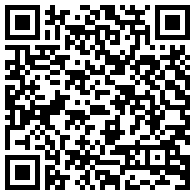Misbah-Uz-Zulam - Roots of the Kerbala Tragedy

Misbah-Uz-Zulam - Roots of the Kerbala Tragedy
Author :
Interpreter :
Publisher :
Publication year :
2009
Publish number :
First
Publish location :
Qum, Iran
Number of volumes :
1
(0 Votes)

(0 Votes)
Misbah-Uz-Zulam - Roots of the Kerbala Tragedy
The tragedy of Karbalāʾ did not emerge in isolation; it was the culmination of moral decline and political deviation within the Muslim community. Imam Ḥusayn Ibn ʿAlī (ʿa, an honorific meaning ʿalayhi al-salām — “peace be upon him”) stood as the divine light that exposed corruption (fasād) and revealed truth (ḥaqq). Misbah-Uz-Zulam — literally “The Lamp in Darkness” — examines the roots of this tragedy, showing how the moral struggle of Karbalāʾ began long before the battlefield.
About the Book
Written by Sayyid ʿAbd al-Razzāq al-Mūsawī al-Muqarram and published by Ansariyan Publications (Qom, Iran), Misbah-Uz-Zulam – Roots of the Kerbala Tragedy investigates the sociopolitical and ethical factors that led to the martyrdom (shahādah) of Imam Ḥusayn (ʿa). Through detailed references to early Islamic history, the author traces the rise of dynastic power (mulk al-ʿaḍūd, hereditary rule), the distortion of prophetic values, and the gradual erosion of justice (ʿadl).
The work reveals how Imam Ḥusayn’s (ʿa) stand was a continuation of his grandfather’s mission — a call to iṣlāḥ (moral renewal) and hidāyah ilāhiyyah (divine guidance). Combining historical analysis with ethical insight, the book serves as both a scholarly study and a moral reminder of how faith decays when separated from integrity.
What You Will Discover
- A chronological study of the moral and political roots of the Karbalāʾ tragedy.
- Analysis of how mulk al-ʿaḍūd (hereditary rule) replaced prophetic leadership.
- The role of Imam Ḥusayn (ʿa) as the defender of ḥaqq (truth) and ʿadl (justice).
- The meaning of iṣlāḥ (moral renewal) and hidāyah ilāhiyyah (divine guidance) in Imam Ḥusayn’s (ʿa) mission.
- Historical lessons on preserving faith through self-reform and moral vigilance.
About the Author
Sayyid ʿAbd al-Razzāq al-Mūsawī al-Muqarram (1904–1971) was a prominent Shīʿī historian and biographer known for his analytical approach to early Islamic events. His works, including al-ʿAbbās, Maqtal al-Ḥusayn, and Maqātil al-Ṭālibiyyīn, combine detailed scholarship with moral reflection. In Misbah-Uz-Zulam, he illuminates the ethical dimension of history, emphasizing that the fall of values — not armies — caused Karbalāʾ.
Who Is This Book For?
This book is for readers seeking a deeper understanding of the moral and historical context of Imam Ḥusayn’s (ʿa) revolution — ideal for scholars, educators, and anyone interested in how ethical decay transforms communities and how Karbalāʾ remains a light against such darkness.






